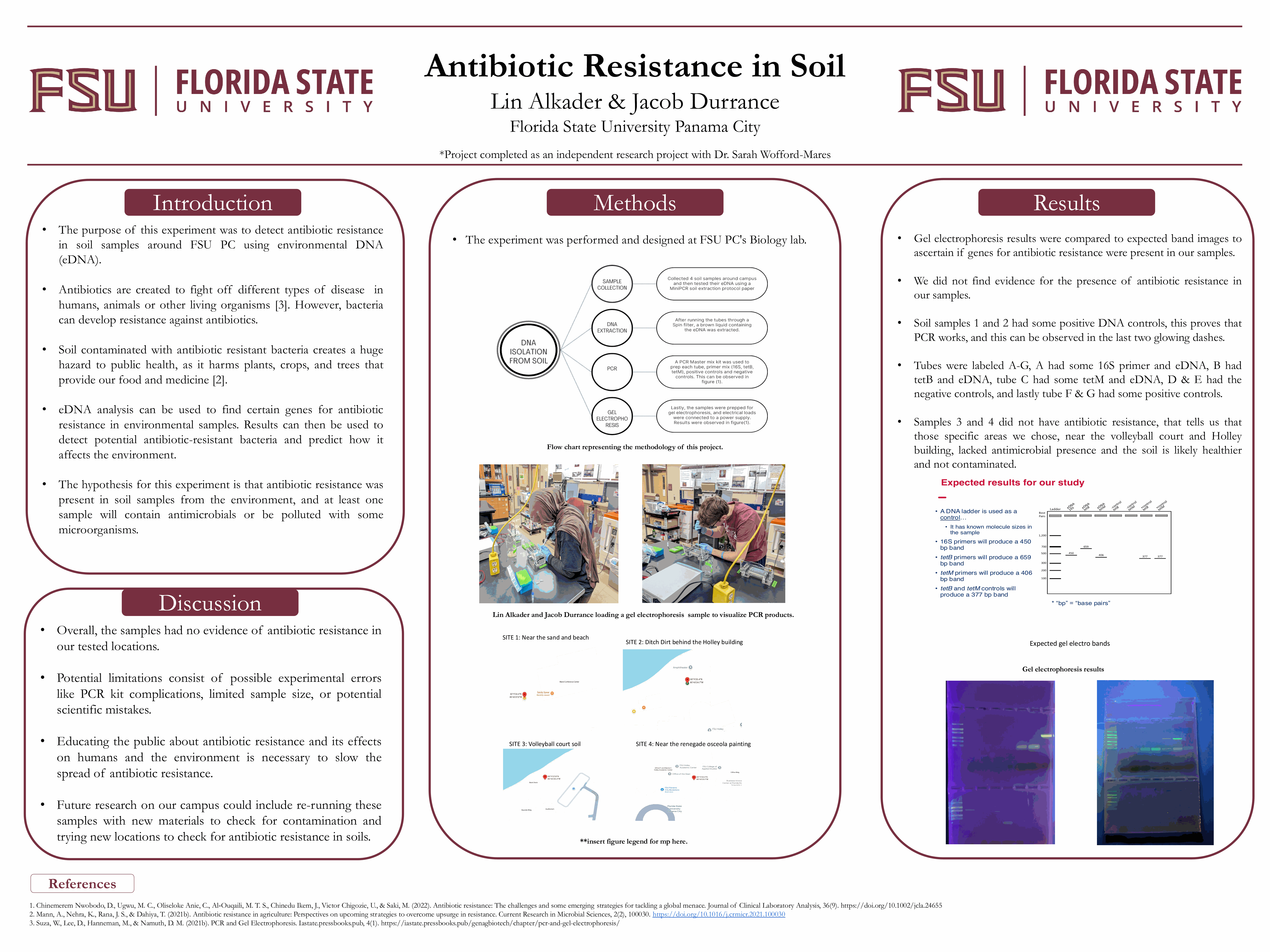Student Research Symposium Program Portal: Submission #115
Submission information
Submission Number: 115
Submission ID: 8146
Submission UUID: 5ece3f42-bc78-4a59-ba25-3017e1f82500
Submission URI: /student-research/symposium/research-symposium-program-portal
Submission Update: /student-research/symposium/research-symposium-program-portal?token=zmvH7FPo_BROfIo3PmuLgV7j5Lfz-67_US4XhqaZQ7s
Created: Sat, 02/08/2025 - 10:50 AM
Completed: Sat, 02/08/2025 - 10:57 AM
Changed: Fri, 05/02/2025 - 12:09 PM
Remote IP address: 69.1.193.97
Submitted by: Anonymous
Language: English
Is draft: No
Webform: Research Symposium Program Portal WF
Submitted to: Student Research Symposium Program Portal
Lin Alkader and
Jacob Durrance
{Empty}

Exploratory
I am from Tallahassee Florida and have a passion for learning languages.
Antibiotic Resistance in Soil
Antibiotics are created to fight off different types of bacteria in humans, animals or other living organisms. However, the bacteria can develop resistance against antibiotics. Antibiotic resistance can create significant issues for human medical care as well as agriculture. Moreover, contaminated soil from areas with antibiotic resistant bacteria can spread and affect the ecosystem and increase infection rates by pathogenic bacteria. Our study assessed the presence of antibiotic resistant bacteria in soil samples around the FSU Panama City campus. Four 0.25g soil samples were collected from around campus in the fall of 2024. Bacterial DNA profiles were extracted using a pre-designed kit. Polymerase chain reaction and gel electrophoresis techniques were used to assess several control and experimental groups to ensure we did not have sample contamination. These tests told us about the presence harmful bacteria with antibiotic resistance genes. Testing concluded that we had significant contamination in some samples and insufficient bacterial DNA extractions in other samples. Unfortunately, this meant we were unable to definitively say whether there are antibiotic resistance genes in our soils. Future studies, should focus on streamlining lab techniques to reduce contamination and explore new areas of the FSU PC campus and surrounding areas. Although our data were inconclusive, we still gained knowledge about the process of testing eDNA for the presence of bacteria around FSU campus.
Sarah-Wofford Mares
Florida State University
Biological Sciences
la24@fsu.edu
{Empty}
{Empty}
Resistance soil
C- 2 R - 6
Complete
Face to Face Poster session

No
2025
5th annual Undergraduate Research Symposium, April 17, 2025
https://pc.fsu.edu/student-research/symposium/research-symposium-program-portal?element_parents=elements/student_photo&ajax_form=1&_wrapper_format=drupal_ajax&token=zmvH7FPo_BROfIo3PmuLgV7j5Lfz-67_US4XhqaZQ7s
{Empty}
